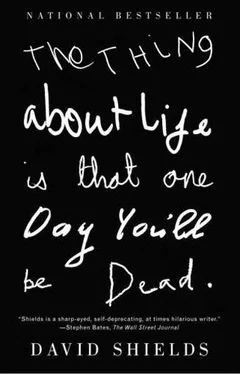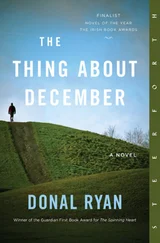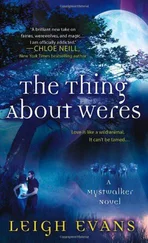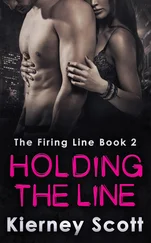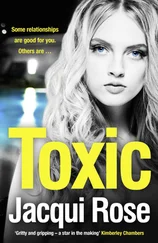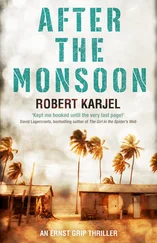His voice in these stories is that of a macher, when in reality he’s obsessed with his failures and as tough as nail polish; I want him to write about weakness, about his weaknesses, but instead he quotes, approvingly, a friend, who says about women, “Remember the four F’s: find ’em, feel ’em, fuck ’em, and forget ’em.” My dad, Sam Spade.
He grew up poor with four brothers and two sisters (his mother died when he was 12 and one of his sisters died when he was 16), but nostalgia reigns: “Ah, them were the days, the good old days: the age of innocence, the summers of my vast content.” “I’ve never felt that ‘at home’ feeling about any other apartment I’ve lived in as I did about 489 New Jersey.” “Mrs. Mason was very supportive, hugging me to her bosom at times or drying my tears.”
My father and mother divorced shortly before her death 30 years ago, and they had, by common consent, an extremely bad relationship. But it’s now a “solid-as-Gibraltar marriage.” My father, asking for time off from his boss, tells him, “I was faced with a palace revolution and the three revolutionaries at home were getting ready to depose the king.” The king he wasn’t. I want him to write about forever having to polish the queen’s crown according to her ever-changing and exacting specifications. I want to ask him: What did that feel like? I want to know: What is it like inside his skin? What is it like inside that bald, ill dome? Please, Dad, I want to say: only ground-level. No aerial views or airy glibness.
The junior varsity played immediately after the varsity. At the end of the third quarter of the varsity game, all of us on the JV, wearing our good sweaters, good shoes, and only ties, would leave the gym to go change for our game. I loved leaving right when the varsity game was getting interesting; I loved everyone seeing us as a group, me belonging to that group, and everyone wishing us luck; I loved being part of the crowd and breaking away from the crowd to go play. And then when I was playing, I knew the crowd was there, but they slid into the distance like the overhead lights.
As a freshman I was the JV’s designated shooter, our gunner whenever we faced a zone. I’d make three or four in a row, force the other team out of its zone and then sit down. I wasn’t a creator. I couldn’t beat anyone off the dribble, but I could shoot. Give me a step, some space, and a screen—a lot to ask for—and I was money in the bank.
Throughout my freshman and sophomore years, the JV coach told me I had to learn to take the ball to the basket and mix it up with the big guys underneath. I didn’t want to, because I knew I couldn’t. I already feared I was a full step slow.
The next summer I played basketball. I don’t mean I got in some games when I wasn’t working at A&W or that I tried to play a couple of hours every afternoon. I mean the summer of 1972 I played basketball. Period. Nothing else. Nothing else even close to something else. All day long that summer, all summer, all night until at least ten.
The high school court was protected by a bank of ice plants and the walls of the school. Kelly-green rims with chain nets were attached to half-moon boards that were kind only to real shooters. The court was on a grassy hill overlooking the street; when I envision Eden, I think of that court during that summer—shirts against skins, five-on-five, running the break till we keeled over. I played in pickup games, for hours alone, with friends, against friends, with people I’d never seen before and never saw again, with middle-aged men wearing college sweatshirts who liked to keep their hands on my ass as they guarded me, with friends’ younger brothers who couldn’t believe how good I was, with College of San Mateo players keeping in shape during the summer who told me I might make it, with coaches who told me the future of their jobs rested on my performance, with the owners of a pornographic bookstore who asked me if I wanted to appear in an art film, with my father, who asked me whatever happened to the concept of teamwork.
I played on asphalt, but also in gyms, in my mind, in rain, in winds that ruled the ball, beneath the burning sun. I wore leather weights around my ankles, taking them off only in bed, so my legs would be stronger and I’d be able to jump higher. I read every available book on technique. I jumped rope: inside, around the block, up stairs, walking the dog. Alone, I did drills outlined in an instructional book. A certain number of free throws and lay-ins from both sides and with each hand, hook shots, set shots from all over, turnaround jumpers, jumpers off the move and off the pass, tip-ins. Everything endlessly repeated. I wanted my shoulders to become as high-hung as Warriors star Rick Barry’s, my wrists as taut, my glare as merciless. After a while, I’d feel like my head was the rim and my body was the ball. I was trying to put my head completely inside my body. The basketball was shot by itself. At that point I’d call it quits, keeping the feeling.
My father would tell me, “Basketball isn’t just shooting. You’ve got to learn the rest of the game.” He set up garbage cans around the court that I had to shuffle-step through, then backpedal through, then dribble through with my right hand, left hand, between my legs, behind my back. On the dead run, I had to throw the ball off a banked gutter so it came back to me as a perfect pass for a layup—the rest of the game, or so I gathered.
Mr. Rossi, the varsity coach, was wiry and quick, and most of us believed him when he alluded to his days as a floor leader at Santa Clara. He never said much. He showed a tight smile, but every now and then he’d grab you by the jersey and stand you up against a locker. Then he’d go back to smiling again.
The first few games of my junior year I started at wing for the varsity. In the first quarter against a team from Redwood City, I got the ball at the top of the key, faked left, picked up a screen right, and penetrated the lane—a rarity for me. My defender stayed with me, and when I went up for my shot we were belly-to-belly. To go forward was an offensive foul and backward was onto my butt. I tried to corkscrew around him but wasn’t agile enough to change position in midair. The Redwood City guy’s hip caught mine and I turned 180 degrees, landing on my leg. My left thigh tickled my right ear. I shouted curses until I passed out from the pain.
I had a broken femur and spent the winter in traction in a hospital. My doctor misread the X-rays, removing the body cast too early, so I had an aluminum pin planted next to the bone, wore a leg brace, and swung crutches all year. (I recently had the pin removed, for no particularly compelling reason of any kind other than it spooked me to think of one day being buried with a “foreign object” in my body. For one thing, it’s a violation of Jewish law. Not that I’ll be buried; I’ll be cremated. Not that I’m religious; I’m an atheist. Still, leaving the pin in seemed to me some obscure violation of the order of things.) In the fall, the brace came off and my father tried to work with me to get back my wind and speed, but he gave up when it became obvious my heart wasn’t in it. Senior year I was 10th man on a 10-man team and kept a game journal, which evolved into a sports column for the school paper. I soon realized I was better at describing basketball and analyzing it than playing it. I was pitiless on our mediocre team and the coach called me “Ace” (as in “ace reporter”), since I certainly wasn’t his star ballhawk. I could shoot when left open but couldn’t guard anyone quick or shake someone who hounded me tough. I fell into the role of the guy with all the answers and explanations, the well-informed benchwarmer who knew how zones were supposed to work but had nothing to contribute on the floor himself. To my father’s deep disappointment, I not only was not going to become a professional athlete; I was becoming, as he had been on and off throughout his life and always quite happily, a sportswriter. Listen to this trip-down-memory-lane piece he wrote a few years ago for his local paper:
Читать дальше
